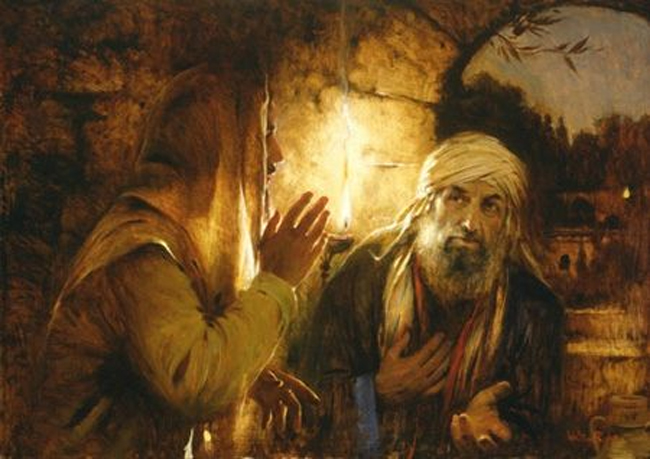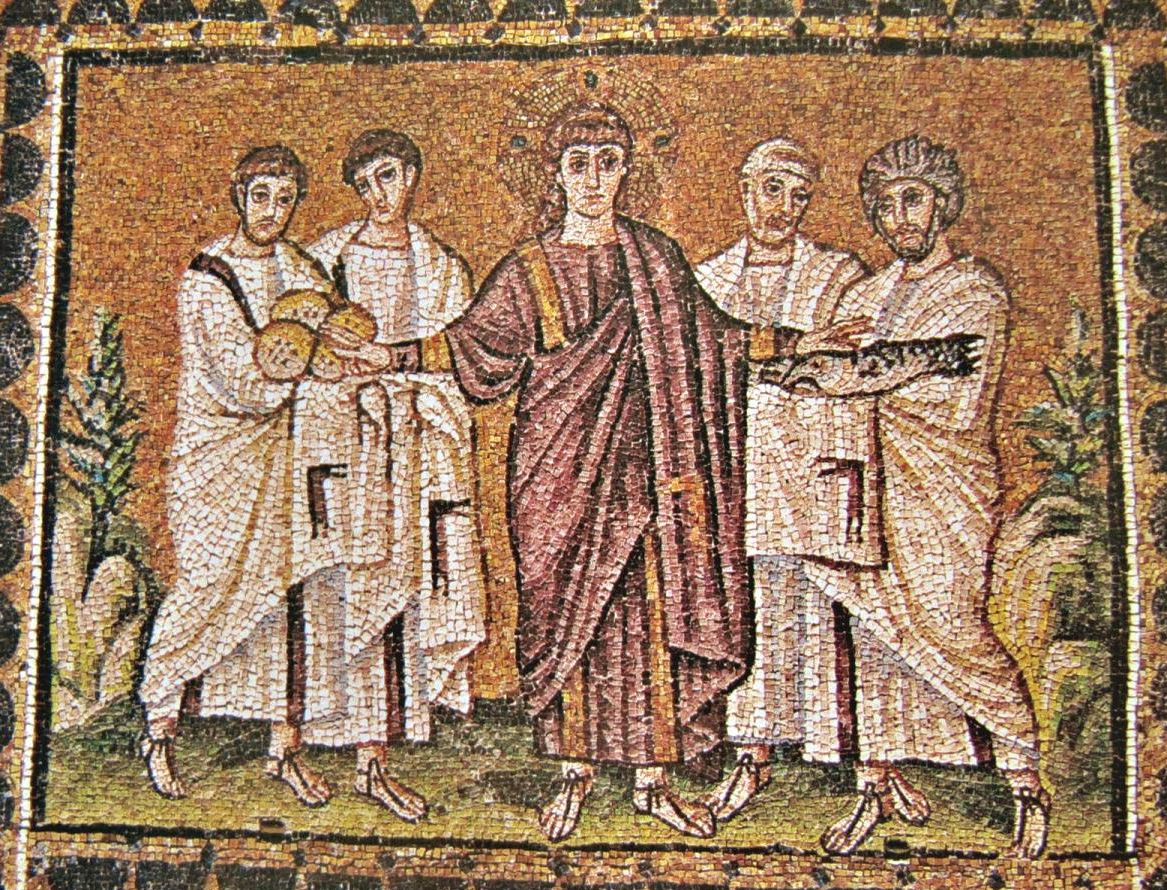Christian Art | Jesus Teaches How To Pray | King James Audio BIble
Luke 11: 5-13 – Week 27 Ordinary Time, Thursday (King James Audio Bible KJV, Spoken Word)
5 And he said unto them, Which of you shall have a friend, and shall go unto him at midnight, and say unto him, Friend, lend me three loaves;
6 For a friend of mine in his journey is come to me, and I have nothing to set before him?
7 And he from within shall answer and say, Trouble me not: the door is now shut, and my children are with me in bed; I cannot rise and give thee.
8 I say unto you, Though he will not rise and give him, because he is his friend, yet because of his importunity he will rise and give him as many as he needeth.
9 And I say unto you, Ask, and it shall be given you; seek, and ye shall find; knock, and it shall be opened unto you.
10 For every one that asketh receiveth; and he that seeketh findeth; and to him that knocketh it shall be opened.
11 If a son shall ask bread of any of you that is a father, will he give him a stone? or if he ask a fish, will he for a fish give him a serpent?
12 Or if he shall ask an egg, will he offer him a scorpion?
13 If ye then, being evil, know how to give good gifts unto your children: how much more shall your heavenly Father give the Holy Spirit to them that ask him?
Jesus teaches us to know the effectiveness of prayer through what might seem an unusual comparison, or parable. The suggestion is that a person asking his friend for bread will be given that bread not because of friendship, but because of his insistence and persistency in knocking and asking for the bread. This might seem to us an unusual way of considering God’s response to our prayers.
The truth is that God expects our prayer, and wants us to pray with great energy and persistency. It is through prayer that God’s gifts come to us. God is not remote or detached; he is our Father who loves us. We are asked through prayer to reflect just how much God loves us.
Saint John Vianney taught: ‘Do you see the effectiveness of prayer when it is done properly? Are you not convinced like me that, if we do not obtain what we ask God for, it is because we are not praying with faith, with a heart pure enough, with enough confidence, or that we are not persevering in prayer the way we should? God has never refused nor will ever refuse anything to those who ask for His graces in the way they should. Prayer is the great recourse available to us to get out of sin, to persevere in grace, to move God’s heart and to draw upon us all kinds of blessing from Heaven, whether for the soul or to meet our temporal needs’
The Holy Spirit is God’s best gift to us. Christ promised the Spirit to his disciples, and the Spirit descended upon them at Pentecost, giving them joy and freedom to proclaim the good news of Jesus.
Saint Josemaria Escriva writes: ‘The profound reality which we see in the texts of Holy Scripture is not a remembrance from the past, from some golden age of the Church which has since been buried in history. Despite the weaknesses and the sins of every one of us, it is the reality of today’s Church and the Church in all times. “I will pray to the Father,” our Lord told His disciples, “and He will give you another Counsellor to be with you for ever.” Jesus has kept His promise. He has risen from the dead and, in union with the eternal Father, He sends us the Holy Spirit to sanctify us and to give us life.’
Concluding Prayer | Love Revealed By Jesus Christ
Lord, in answer to our prayer,
give us patience in suffering hardships
after the example of your Only-begotten Son,
who lives and reigns for ever and ever.
Through Christ our Lord.
![]()

King James Audio Bible | Endnotes
Jesus Teaches How To Pray
In Luke 11: 5-13, Jesus teaches his disciples how to pray. The passage is full of depth and detail, offering insight into the nature of prayer and how to approach God.
The passage begins with Jesus telling a parable about a man who goes to his friend’s house at midnight asking for three loaves of bread. The friend initially refuses, but after persistent asking, he eventually gives in and gives the man what he needs. Jesus uses this story to emphasize the importance of persistence in prayer. Jesus says: ‘And I say unto you, Ask, and it shall be given you; seek, and ye shall find; knock, and it shall be opened unto you. For every one that asketh receiveth; and he that seeketh findeth; and to him that knocketh it shall be opened.’ (Luke 11: 9-10)
Jesus then goes on to explain that God is a loving and generous Father who desires to give good gifts to his children. Jesus says: ‘If ye then, being evil, know how to give good gifts unto your children: how much more shall your heavenly Father give the Holy Spirit to them that ask him?’ (Luke 11: 13)
This passage offers several important insights into the nature of prayer. Firstly, it emphasizes the importance of persistence in prayer. We should not give up easily, but continue to ask, seek, and knock until we receive what we need. Secondly, it highlights the fact that God is a loving and generous Father who desires to give good gifts to His children. We can approach God with confidence, knowing that He will listen to our prayers and provide for our needs. Finally, it points to the importance of the Holy Spirit in our prayer lives. We need the guidance and empowerment of the Spirit to pray effectively and receive what we ask for.








